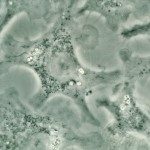Lien vers Pubmed [PMID] – 20584346
Crit Care 2010;14(3):167
Studying a large number of patients with sepsis, the Hellenic sepsis study group led by Evangello Giamarellos-Bourboulis emphasizes that the nature of the bacterial infection, its origin (community or nosocomial), its site, and its severity exert different pressures on the immune system. Their study illustrates the heterogeneity of patients with sepsis and points out that numerous key parameters of severe infection influence immune status.

